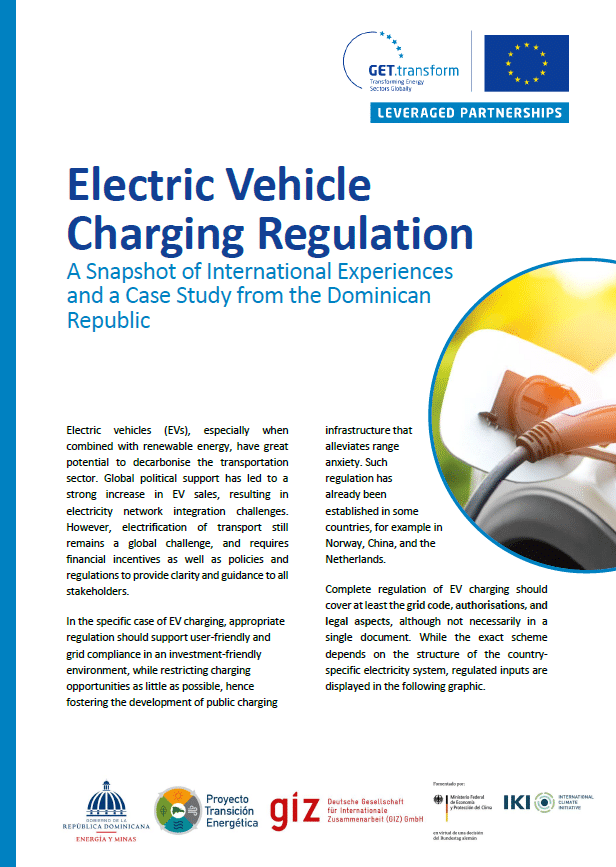GET.transform provides a short paper on international experiences to help inform effective regulation for electric vehicle (EV) charging. EVs, especially when combined with renewable energy, have great potential to decarbonise the transportation sector. At the same time, regulators are faced with the complex challenge of drawing up new regulation to cater to all aspects of these new mobility and grid use patterns.
Appropriate EV regulation should support user-friendliness and grid compliance in an investment-enabling environment, while restricting charging opportunities as little as possible to foster development of public charging infrastructure that alleviates ‘range anxiety’.
The GET.transform short paper presents international EV regulation experiences and presents a case study from the Dominican Republic. The findings draw on results of the Energy Transition Project, which is funded by the German Federal Ministry for Economic Affairs and Climate Action and implemented by GIZ, and which tapped into GET.transform expertise through a Leveraged Partnership.
In partnership with the Dominican regulator, the Superintendency of Electricity (SIE), the objective was to provide a single regulation that covers all technical and tariff aspects of EV charging and provides equal charging access to all stakeholders. The new regulation came into force in December 2022 and largely draws on the project report with recommendations by GET.transform, Energynautics and the Energy Transition Project of GIZ.



